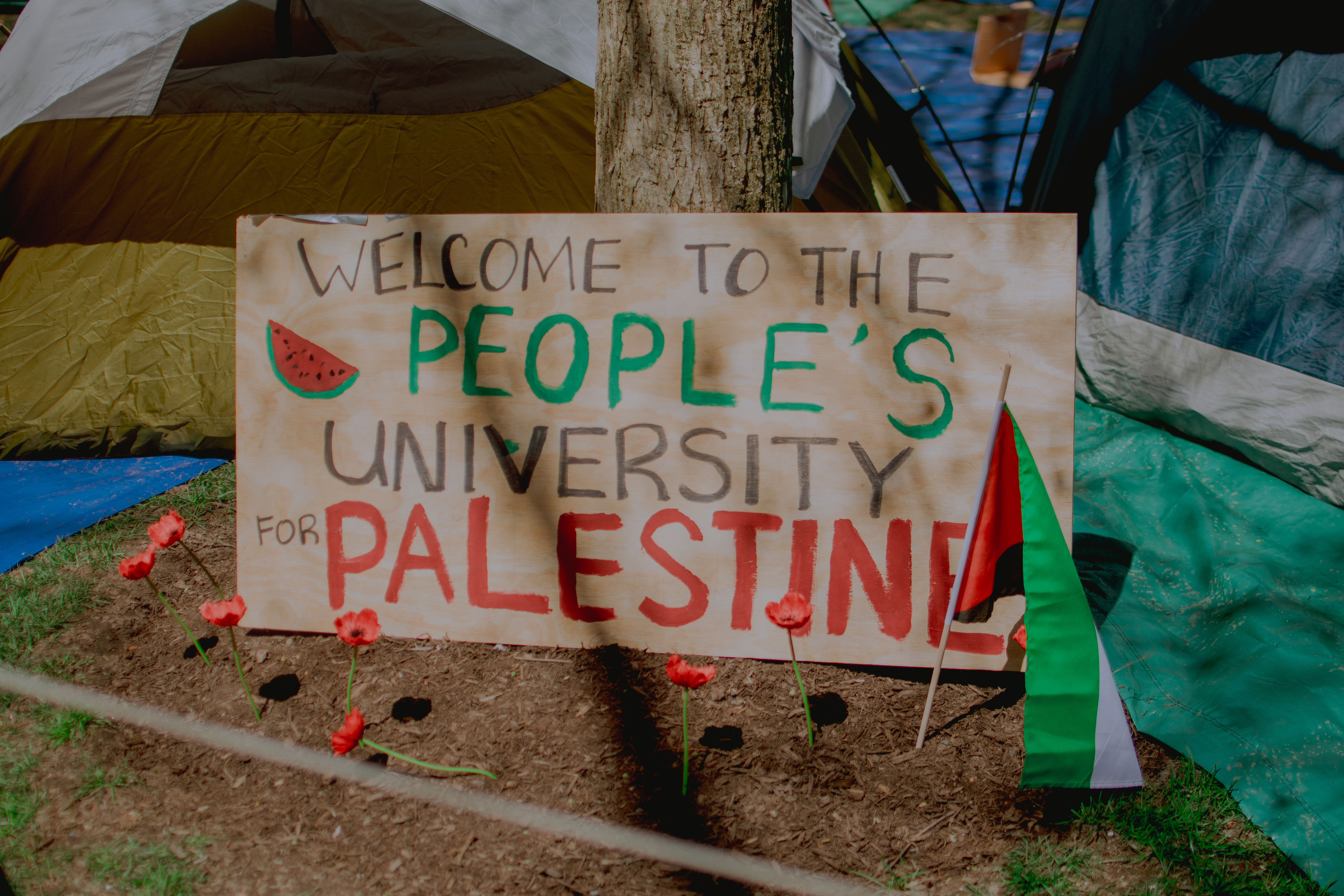Archive
NO TECH FOR APARTHEID, October 18
CONVOCATION ISSUE, September 2
Harvard Reorientation
Congratulations on becoming an official Harvard undergraduate! While you do learn a few things at Convocation, the University won’t reveal how power really works around here. Here’s our attempt to reorient you.
What The Fuck Happened Last Year?
Two timelines. None of this began on October 7th. Seventy-six years after the Nakba, Israel occupies Gaza, blockading air, land, and sea routes in and out and crippling Gaza’s economy. Israeli settlers routinely destroy villages and kill Palestinians in the West Bank. Millions of Palestinians live in exile, many in cramped refugee camps, unable to return to their homes.
Why You Should Organize
We are living through an inflection point in history. While people toil away working multiple jobs just to put food on their family’s plates, the U.S. and its institutions invest billions of dollars in the destruction of Palestine.
A History of Harvard Protests
Harvard wants you to believe that the only way to create change within the University is by standing down and asking politely. In reality, nothing could be further from the truth. In this article, read about successful campaigns waged by student protestors via disruptive action.

COMMENCEMENT ISSUE, May 22
How Harvard Financially Supports Israeli Occupation
Harvard’s endowment seems a black box of colossal proportion. It is nearly $50 billion worth of opaque investments and undisclosed financial ties. In conversations with student activists, Harvard administration acts as a proxy for the Harvard Management Company, dismissing demands for disclosure and divestment with retorts of “infeasibility.”

A Conversation with Writers Against the War on Gaza
Writers Against the War on Gaza (WAWOG) is a coalition of writers, editors, and other cultural workers committed to solidarity with and the liberation of the Palestinian people.
The Crimson’s Commitment to Objectivity Stops at Palestine
In 2022, Harvard student groups invited the Palestinian writer Mohammed el-Kurd to give a talk about state violence. Here is the beginning of the Harvard Crimson article about his visit.
Vertigo: To Be Palestinian at Harvard
Three Palestinian Harvard Law Students Address Harvard’s Spring 2024 Arab Commencement with a tribute to the 15 barred from graduation for participating in the Gaza Solidarity Encampment.
The Ongoing Nakba: Toward a Legal Framework for Palestine
The following excerpts are from a piece titled “The Ongoing Nakba: Toward a Legal Framework for Palestine” by Palestinian lawyer and legal scholar Rabea Eghbariah. This article was originally solicited, edited, fact-checked, contracted, and slated for publication with the Harvard Law Review in November 2023.
How Am I Supposed to Feel Safe at a University That Bankrolls the Slaughter of My People?
"Palestinians at Harvard and on campuses across the nation are taking charge. Whether people like it or not, this University — and this country — have already begun to crumble in the face of the unavoidable compass of liberation."
Distorted Rhetoric: A Dictionary for Discussing Palestine
The language of the movement for Palestinian liberation is distorted by bad-faith campaigns to appear violent, inflammatory, and antisemitic. Why not ask Palestinians and pro-Palestinian protestors ourselves what our language means?
A Palestine Exception to The Crimson's Editorial Board
On April 29, 2022, The Crimson’s Editorial Board published a staff editorial titled “In Support of Boycott, Divest, Sanctions and a Free Palestine.” Two years, leadership turnovers and waves of backlash later, today’s Editorial Board is a far cry from the one that stood in unequivocal support of Palestine.
Reflections from the Gaza Solidarity Encampment
A collection of testimonials from student participants in the Gaza Solidarity Encampment in Harvard Yard. Most of them inhabited the camp throughout its 20-day tenure and were subject to the University’s harsh disciplinary action. This opportunity for self-definition is most necessary as both the University and the media misrepresented the students’ experiences and aims.
